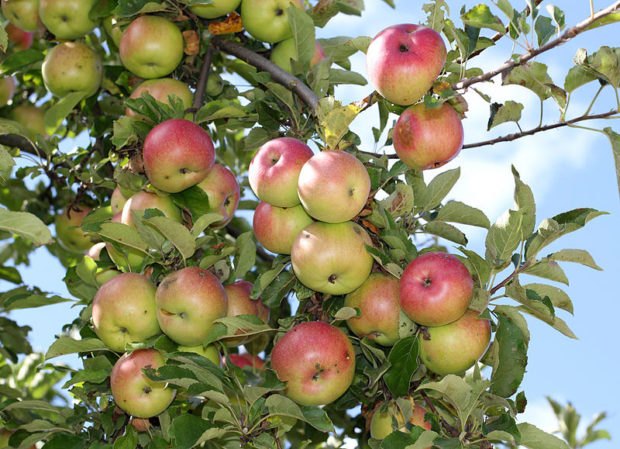
We have a McIntosh apple tree that is about 30 years old. We have never sprayed it. In the spring, lots of tiny, green apples start falling. The remaining apples are wormy and misshapen, thus we end up composting all of them. Is there anything we can do so the apples are good to eat?
Every McIntosh apple has a direct lineage to a single tree discovered in 1811 by John McIntosh in Dundas County, Ontario. Your 30-year-old McIntosh is a venerable species worthy of treatment.
Premature apple drop can stem from several factors. A tree unable to support the vast number of fruits it has produced naturally thins out the fruit to decrease competition and conserve energy. Environmental conditions such as later frosts, excessive heat and cold, and abrupt changes in humidity can cause fruit to drop. The soil may be nutrient-deficient to support fruit growth. A soil test targeting apple trees is in order. Irregular watering can also cause fruit drop. Examine the weather patterns of the last few years to determine what weather conditions occurred. Consider your watering practices and note changes and improvements.
The condition of your remaining apples suggests a strong pathological source. If there are “worms” in the fruit, you probably have codling moth (Cydia pomonella). The worms are the larval stage of this pest. The second generation adults emerge in July laying eggs on the apples. The young caterpillars can tunnel into the developing fruit shortly after egg hatch, exiting to pupate into another generation moth. This is when the most damage is done.
To get good eating apples again, you need a steady maintenance program of vigilance and treatment. Homeowners can manage watering and fertilizing consistently. You can also practice good yard hygiene by removing fallen leaves, fruit, and debris from the tree’s vicinity. Such plant debris provides opportunities for re-infestation. Through observation in the spring, verify the codling moth is the culprit before embarking on any spray insecticide program. Because of the critical timing of sprays and the chemistry of insecticides, hiring a professional arborist who is experienced in tree fruit culture is a wise move. In the space of one season, you should see a marked improvement in edible fruit.
ALSO READ: Tips for Growing Apples in Michigan

Leave a Reply